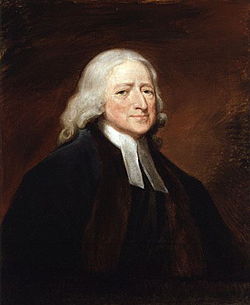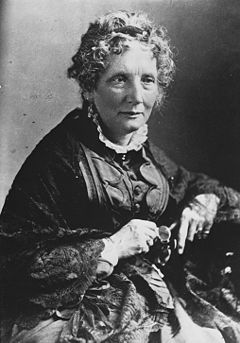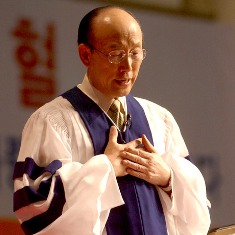Are You An Evangelical?
For Sunday January 22, 2012
Lectionary Readings (Revised Common Lectionary, Year B)
Jonah 3:1–5, 10
Psalm 62:5–12
1 Corinthians 7:29–31
Mark 1:14–20
Are you an evangelical? I hope so.
It's a trick question, of course, especially for a word that's so controversial and complex. "Evangelical" is one of those words that dies the death of a thousand qualifications. That's a shame, because it's an important word. Far beyond mere knee jerk reactions, today you can read sophisticated studies about "evangelicals" from every imaginable perspective: historical, cultural, ethnic, sociological, gender, economic, political, ecclesiastical, missiological, theological, and biblical.
 |
John Wesley (1704-1791). |
I like to joke that I can't decide whether I'm an evangelical liberal or a liberal evangelical. Then my mind wanders to the far broader diversity of traditions that could be included under the umbrella term "evangelical" — Dutch Calvinists, African-American Baptists, all manner of Anabaptists, Catholic charismatics, converts to Orthodoxy, Episcopalians in Africa, Brazilian and Korean pentecostals, the Southern Baptist Convention, and, let's not forget, the original evangelicals in America, the Methodists, thanks to the trans-Atlantic preaching of the British John Wesley.
A friend of mine describes labels as "training wheels for the mind." Labels "help us to begin thinking about complex issues," he says, "but they inhibit our progress if we rely upon them beyond basic categories of analysis." Labels become libels when they're reductionistic. They can distort the complex by invoking the simplistic. And who wants to be dismissed or described by a single word? Every person is much more than any label.
Despite these disclaimers, I want to keep the word "evangelical" in my Christian vocabulary. A Greek word in the gospel explains why.
The first sentence of the gospel of Mark reads, "the beginning of the euanggelion of Jesus Christ." A few paragraphs later, Mark describes how after living in total obscurity for thirty years, Jesus burst onto the public scene "proclaiming the euanggelion of God, saying, 'The time has come. The kingdom of God is near. Repent and believe the euanggelion.'" Jesus himself is the euanggelion, the good news, or the gospel of God. An evangelical thus keeps the main thing the main thing, Jesus as God's good news.
This word euanggelion and its derivatives occur about eighty times in the Greek New Testament. That's one reason why Martin Luther thought the Latin version evangelium was the perfect word to describe his radical movement that spread like wild fire across sixteenth-century Europe — in his native German, the evangelische kirche, in contrast to what he thought were the distortions, corruptions, and accretions of medieval Catholicism that had obscured the simple good news of God in Jesus. An evangelical, then, also identifies with the Protestant Reformation.
 |
Harriet Beecher Stowe (1811-1896), author of Uncle Tom's Cabin. |
There are numerous competitors and imitators when it comes to "good news." Consider this inscription from Asia Minor from about 9 BC that describes Caesar Augustus: "The most divine Caesar...we should consider equal to the Beginning of all things...Whereas the Providence which has regulated our whole existence...has brought our life to the climax of perfection in giving to us the emperor Augustus...who being sent to us as a Savior, has put an end to war...The birthday of the god Augustus has been for the whole world the beginning of good news (euanggelion)."
I'm not a fan of Pope Benedict XVI, but I like what he says about this word euanggelion and how it elucidates the paean of praise to Caesar Augustus. In his book Jesus of Nazareth (pp. 46-47) he writes:
Both Evangelists designate Jesus’ preaching with the Greek term evangelion — but what does that actually mean?
The term has recently been translated as “good news.” That sounds attractive, but it falls far short of the order of magnitude of what is actually meant by the word evangelion. This term figures in the vocabulary of the Roman emperors, who understood themselves as lords, saviors, and redeemers of the world. The messages issued by the emperor were called in Latin evangelium, regardless of whether or not their content was particularly cheerful and pleasant. The idea was that what comes from the emperor is a saving message, that it is not just a piece of news, but a change of the world for the better.
When the Evangelists adopt this word, and it thereby becomes the generic name for their writings, what they mean to tell us is this: What the emperors, who pretend to be gods, illegitimately claim, really occurs here — a message endowed with plenary authority, a message that is not just talk, but reality. In the vocabulary of contemporary linguistic theory, we would say that the evangelium, the Gospel, is not just informative speech, but performative speech — not just the imparting of information, but action, efficacious power that enters into the world to save and transform. Mark speaks of the “Gospel of God,” the point being that it is not the emperors who can save the world, but God. And it is here that God’s word, which is at once word and deed, appears; it is here that what the emperors merely assert, but cannot actually perform, truly takes place. For here it is the real Lord of the world — the living God — who goes into action.
The toxic combination of illusion and idolatry is precisely how politics tempts us, and also what followers of Jesus reject. The early Christian confession that "Jesus is Lord" thus included an implicit political claim: caesar is not Lord.
Jesus said "the kairos has come." The Greek word kairos denotes a critical juncture, a divine appointment or intervention, in contrast to prosaic chronos or everyday "clock time." You might yawn at chronos, and forget whether it's Wednesday or Thursday, but kairos provokes a radical response, an urgent choice, or a fundamental reorientation. It invites us to "repent," says Mark, to change our minds and actions, just like the Ninevites did in this week's Old Testament reading from Jonah.
When he announced "the euanggelion of God," Jesus identified God's kingdom with his own person. That's why he invited Simon Peter and his brother Andrew, "Come, follow me." Mark is unambiguous about their unequivocal response: "At once they left their nets and followed him." And to punctuate his point, Mark adds that "when they had gone a little farther" Jesus called a second set of brothers, James and John, who were at work in their boats. They too left everything at once to follow Jesus — their father, the hired help, the boat and their nets.
 |
David Yonggi Cho, founder of the Yoido Full Gospel Church in Seoul. |
Jesus proclaimed that "God's kairos has come and his kingdom is near. Repent and believe the euanggelion." In this week's epistle, written about thirty years after Jesus, Paul used remarkably similar language in his letter to believers in Corinth: "The kairos is short… this world in its present form is passing away." Scholars debate what Paul meant when he said that "the time has been shortened" — maybe his death was imminent, that he believed Jesus was to return soon, or that he was alluding to specific matters at Corinth.
Whatever he meant, there's no ambiguity in the response he urged due to the crisis of the kairos. He cautioned against any postponement, entanglements, or distractions. He eliminated any middle ground and called for an either/or decision. The married, the mourning, the exuberant, the buyers and sellers should all live "as if" the normal canons of chronos did not adhere. The fulfillment (Jesus) and foreshortening (Paul) of God's kairos meant that one should no longer live "business as usual." The announcement of God's euanggelion in Jesus should elicit a radical revolution in life's journey.
So, yes, I'm an evangelical, according to the gospel of Mark. Or so I hope.
Image credits: (1) Wikipedia.org; (2) Wikipedia.org; and (3) JourneyOnline.com.au.





